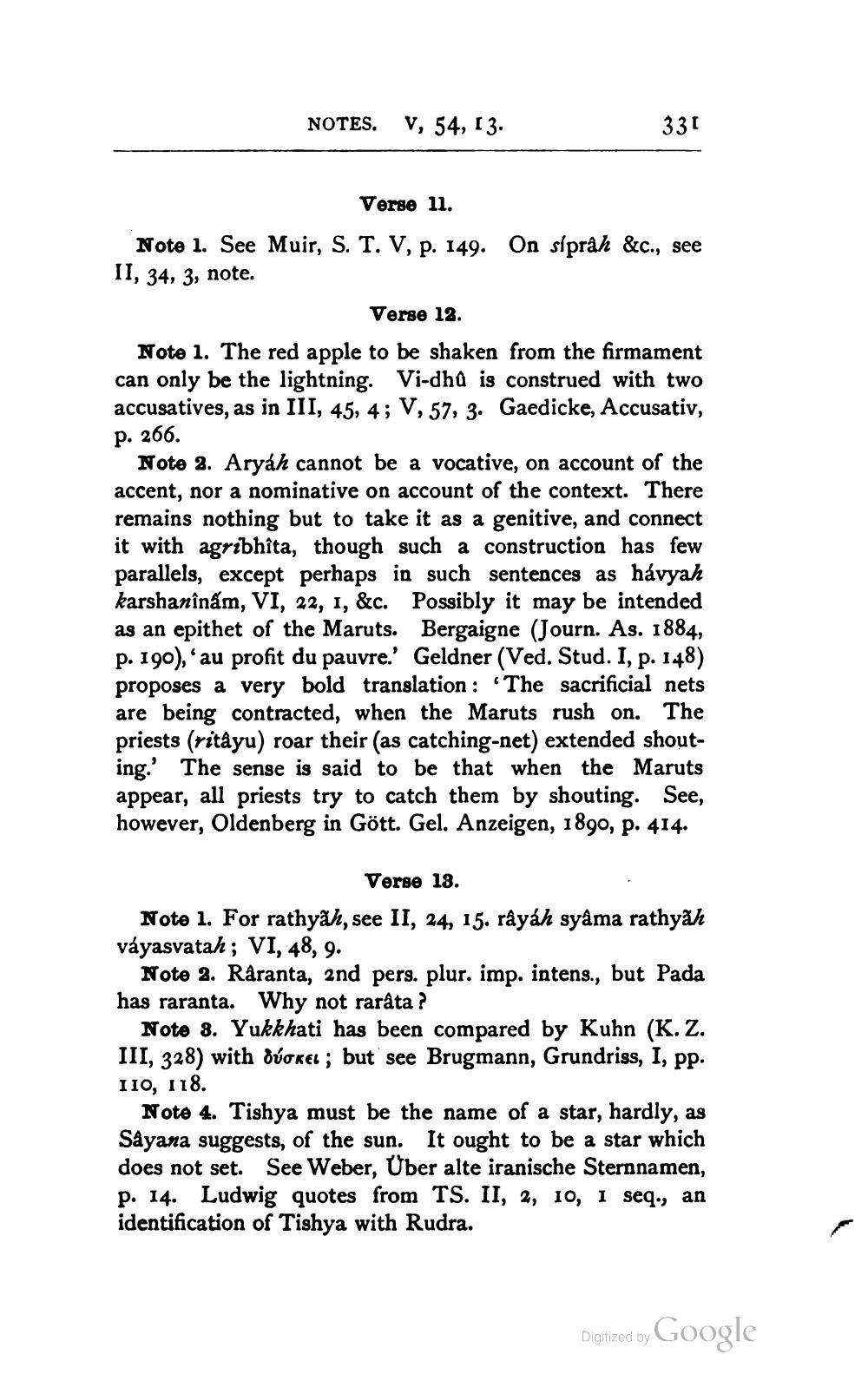________________
NOTES. V, 54, 13.
330
331
Verse 11.
Note 1. See Muir, S. T. V, p. 149. On síprâh &c., see II, 34, 3, note.
Verse 12. Note 1. The red apple to be shaken from the firmament can only be the lightning. Vi-dhù is construed with two accusatives, as in III, 45, 4; V, 57, 3. Gaedicke, Accusativ, p. 266.
Note 2. Aryah cannot be a vocative, on account of the accent, nor a nominative on account of the context. There remains nothing but to take it as a genitive, and connect it with agribhîta, though such a construction has few parallels, except perhaps in such sentences as hávyah karshanînám, VI, 22, 1, &c. Possibly it may be intended as an epithet of the Maruts. Bergaigne (Journ. As. 1884, p. 190), au profit du pauvre. Geldner (Ved. Stud. I, p. 148) proposes a very bold translation: The sacrificial nets are being contracted, when the Maruts rush on. The priests (ritayu) roar their (as catching-net) extended shouting. The sense is said to be that when the Maruts appear, all priests try to catch them by shouting. See, however, Oldenberg in Gött. Gel. Anzeigen, 1890, p. 414.
Verse 18. Note 1. For rathyah, see II, 24, 15. râyáh syama rathyah váyasvatah; VI, 48, 9.
Note 2. Räranta, 2nd pers. plur. imp. intens., but Pada has raranta. Why not rarâta ?
Note 8. Yukkhati has been compared by Kuhn (K. Z. III, 328) with dúokel; but see Brugmann, Grundriss, I, pp. 110, 118.
Note 4. Tishya must be the name of a star, hardly, as Såyana suggests, of the sun. It ought to be a star which does not set. See Weber, Über alte iranische Sternnamen, p. 14. Ludwig quotes from TS. II, 2, 10, i seq., an identification of Tishya with Rudra.
Digitized by
Digilzed by Google




